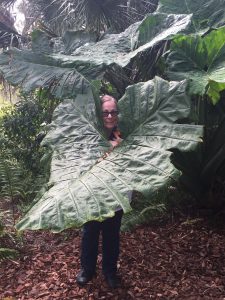
Kathryn Zeiler is a senior instructor at the University of British Columbia. She has a Ph.D. in biochemistry and molecular biology from the University of South Florida (USF) College of Medicine studying nitrogen metabolism in the green alga, Chlorella vulgaris, and an undergraduate degree in Botany – also from USF.
Kathryn has been teaching at UBC since 2009 when she was hired as part of a strategic initiative to enhance the biology teaching program. She teaches/has taught a variety of courses including BIOL340 – Introductory Cell Biology Laboratory, BIOL343 – Plants and People, BIOL347 – Honours Seminar, BIOL447 – 4th year Honours Seminar, BIOL112 – Biology of the Cell, BIOL111 – Introduction to Modern Biology, and Science One. Kathryn has also served as the Botany Safety Chair, was a UBC Curriculum Scholar, is an Integrated Sciences mentor, and a JumpStart faculty fellow.
Prior to her teaching career, Kathryn was a research scientist for ten years at the National Renewable Energy Laboratory in Golden, Colorado. There she worked on genetically engineering microalgae for biodiesel production. You may be noticing a strong interest in photosynthetic organisms in Kathryn’s profile. She actually began her undergraduate career as an art major at a small liberal arts institution in Florida, but soon realized that her real passion was pursuing the science of plants.
During her recent sabbatical Kathryn concentrated on building up her knowledge of lichen biology in order to assess their use as a model system for cell biology. Because lichens are a mutualistic association between fungal and algal cells, they are a wonderful system for use in examining cell signalling and response.
At UBC, one of Kathryn’s primary responsibilities has been the design, development, and delivery of a third year cell biology lab course. She believes deeply in learning by doing, and lab courses provide that experience. Over the years that the course has been offered, Kathryn has experimented with different ways of providing a stimulating educational environment for the students including digital badges, amazing race final exams, and more.
The crucial thread that runs through all of her courses is the concept of productive failure – the opportunity for students to try out ways of thinking and being for themselves in a space where it is safe to “fail”. A widely distributed aphorism says that, “good judgement comes from experience, and experience often comes from poor judgement”.